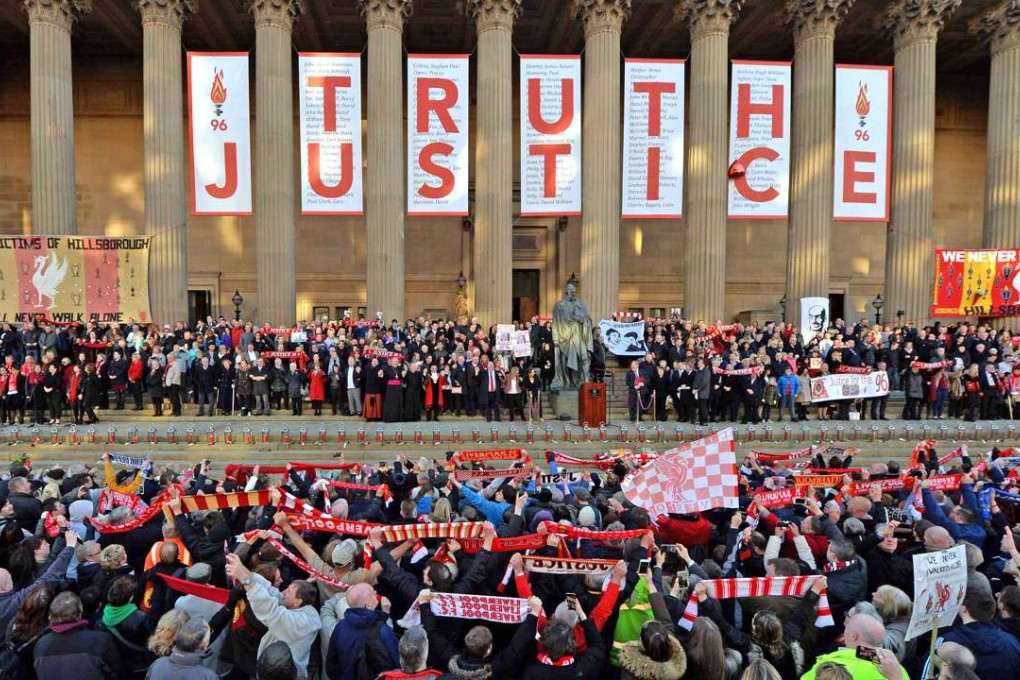Second inquest brings a sense of closure for families of those killed in Hillsborough stadium disaster
The verdict clears Liverpool supporters of accusations of behaviour that contributed to or caused the deaths, but it remains to be seen if others, including police, face criminal charges

Many Hong Kong fans of the English Premier League who remember Liverpool’s reign of the 1980s would empathise with a sense of closure for the families of the 96 supporters killed in the 1989 Hillsborough stadium disaster. A jury in a second inquest found they were unlawfully killed, and that police decisions that contributed to their deaths amounted to gross negligence.
The verdict, following the High Court’s quashing of an initial ruling of accidental deaths, cleared the club’s supporters of accusations of behaviour that contributed to or caused the fatalities.
It remains to be seen if state prosecutors bring criminal charges, including against the police officer responsible for allowing 2,000 extra supporters to pile into already packed terraces, causing a fatal crush. But reaction flowed swiftly.
A former London tabloid editor apologised for publishing a front page that accused drunken Liverpool fans of assaulting police and pickpocketing the dead. To applause from MPs during a debate on flaws in criminal justice, shadow home secretary Andrew Burnham claimed that collusion between political elites, the media and police bolstered a cover-up that reached as high as the prime minister’s office. And the chief constable of South Yorkshire Police has been suspended over his handling of the inquest, including aggressive questioning by police lawyers.